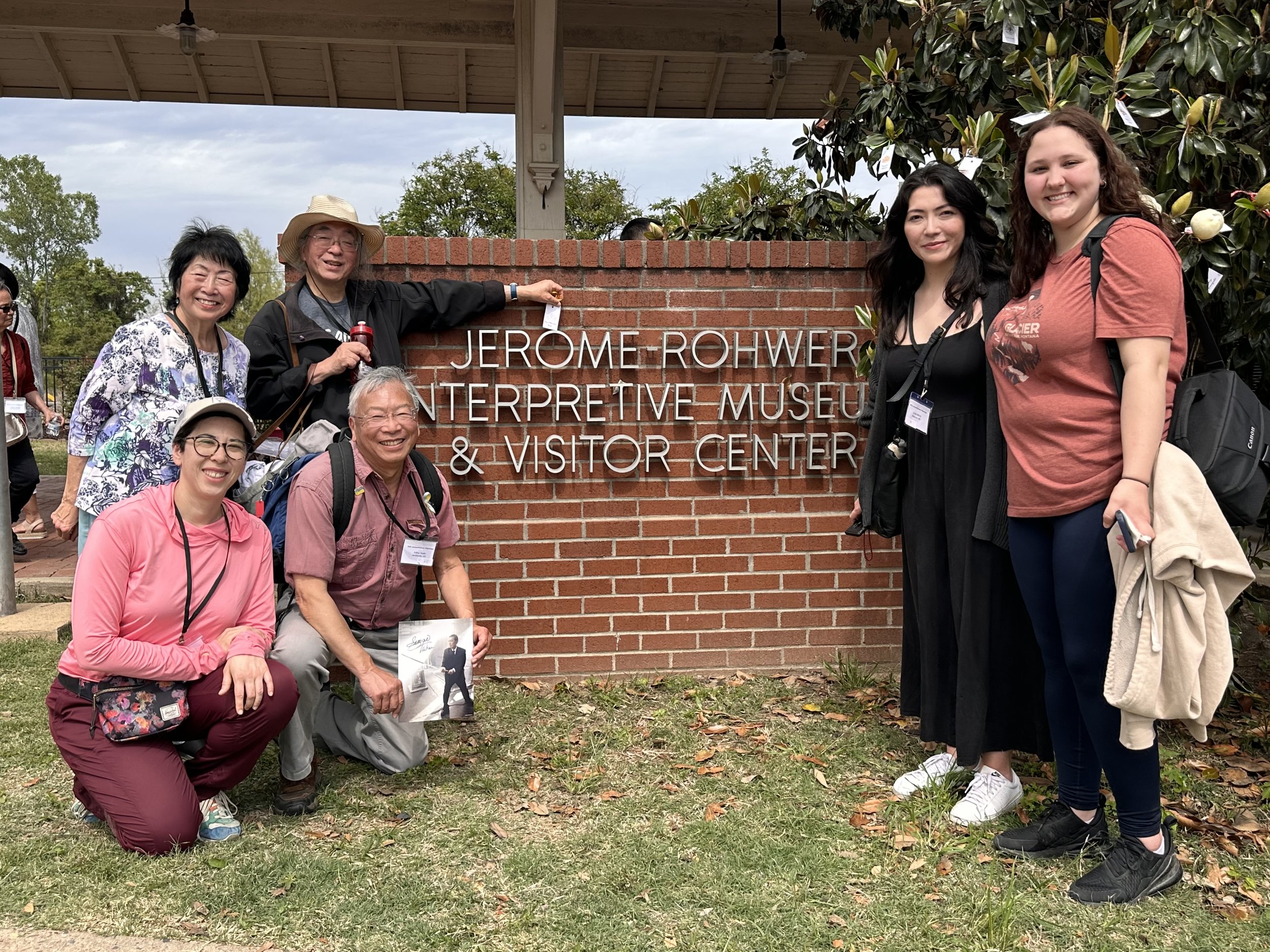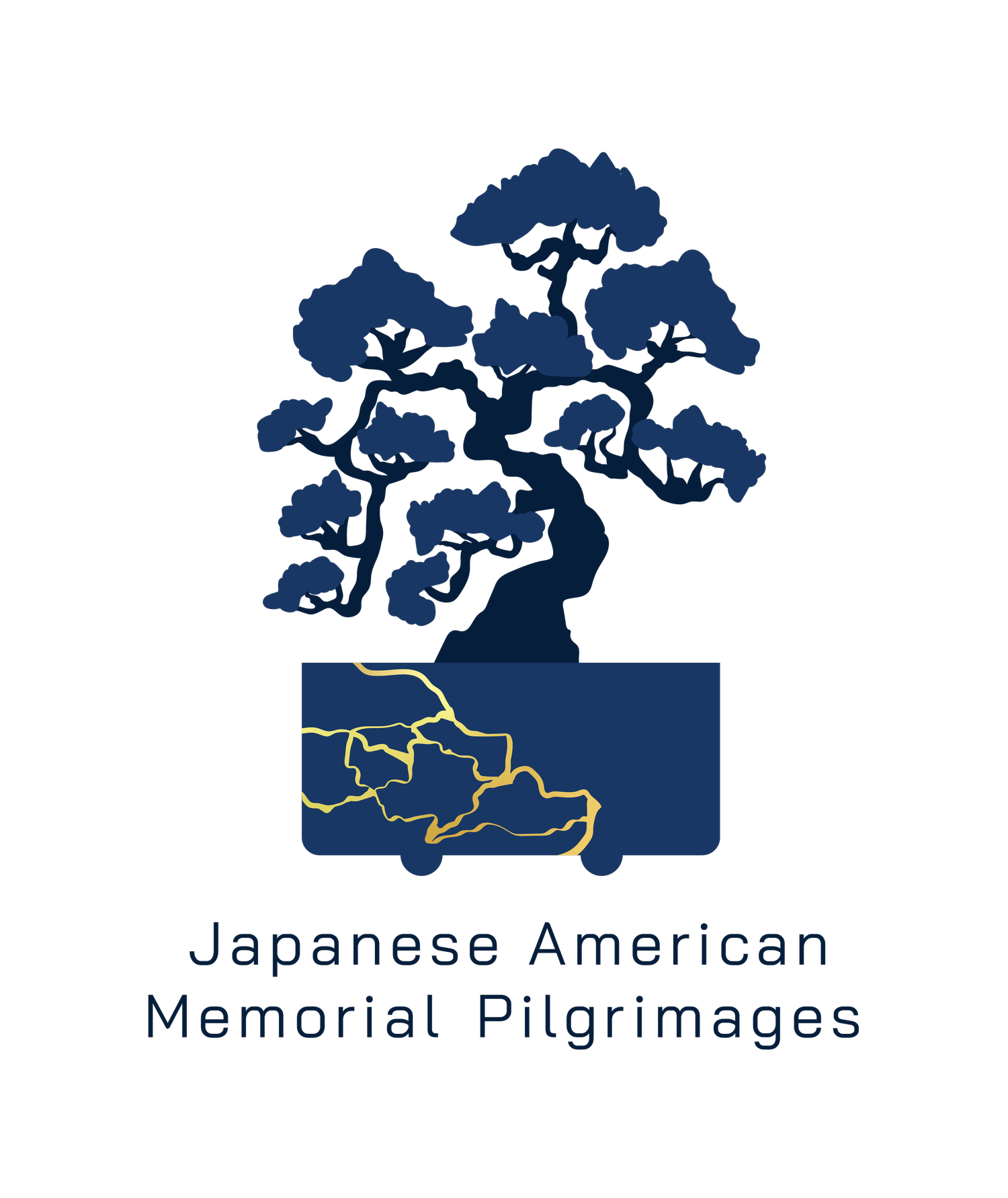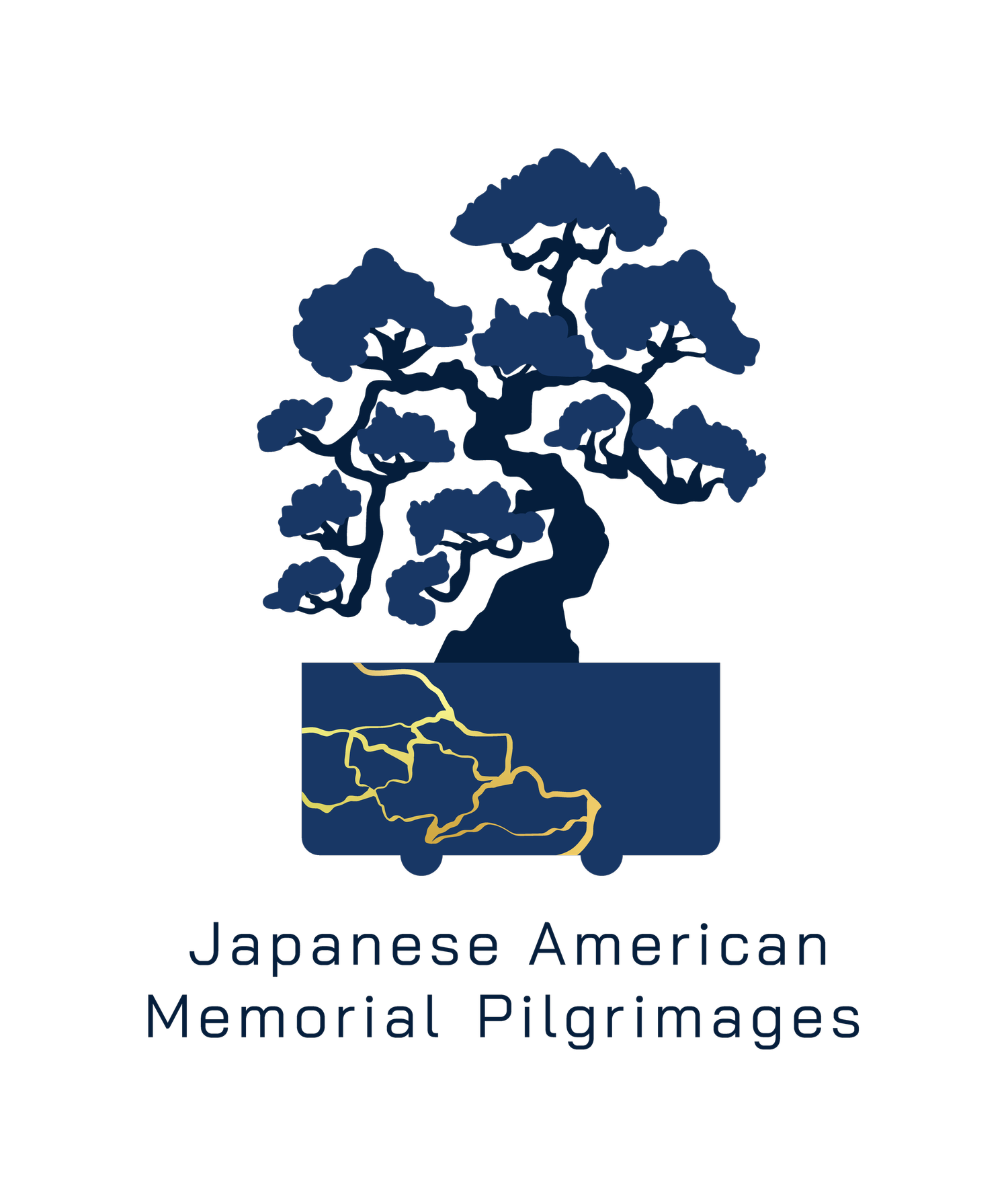
The Power of Pilgrimage
By Mary Ishimoto Morris
When I was a child, I hated my face. Other kids laughed at it. I was ashamed to be me. When I got older, I hated being alive. I tried to kill myself in middle school and high school. Secretly I wondered: What is wrong with me?
It’s funny realizing that all that time I spent in therapy as an adolescent and an adult, the fact that my parents had been unjustly incarcerated for three years of their lives never came up. But why would it? They rarely spoke of it and if it did surface, it was fraught with emotions I couldn’t fathom. Why go there?
I registered for the 2023 Jerome Rohwer Memorial Pilgrimage with trepidation from my lifetime of avoiding anything Japanese. But I left Arkansas changed: At the age of 71, the existential mystery code of what is wrong with me had been cracked. Had it not been for what I experienced there, I might never have worked it out.
When my Yonsei daughter Linda first introduced the idea of the need to “heal” from the Japanese American incarceration, I thought, “Heal? From what?” It was my parents’ time, their parents’ time. What would I have to heal from? But instead of feeling self-protective surrounded by faces like mine, my fears were melting away.
Becca, my cousin Arthur’s daughter, sat beside me in a theater where a panel was about to begin and asked how I was doing. I said, “All my life I’ve been like a hermit crab about Japanese stuff. Once in a while I come out and look around, but I’m back in my shell as soon as I feel threatened. But here, it’s strange. I am out and vulnerable, but I feel safe.” I could think and say things here that I couldn’t anywhere else because I could see in others’ eyes that they knew.
My mother’s mother was ill when her family reported to the Fresno Assembly Center in California. Her eldest son had enlisted in the US Army to prove his loyalty to his country, but when he tried to visit her, in uniform, by law he wasn’t permitted back into California. When her family was sent to Arkansas by train, against doctor’s orders she insisted on going there too. Uncle Tom was able to see her at Jerome before he was sent to war, but she died soon after, leaving behind her husband and her ten other children. My mother never spoke of her.
In McGehee, Kimiko Marr, the pilgrimage founder, was handing out tags she had printed with the names of every person who died at Jerome and Rohwer to honor them by hanging their names on a tree. She ran into my brother Norm who asked if she might have one for our grandmother, Mine Asaki. They weren’t in order but magically Kimiko found her tag and gave it to him. The youngest of our family present was my granddaughter Madison and he gave it to her. While my daughter Linda and I said our Buddhist chant, she tied it to the tree. Lost in our own thoughts each of us solemnly honored the grandmother, great-grandmother, and great-great-grandmother we never knew but amazingly now were connecting with.
In my intergenerational group, I summoned the courage to say out loud that I have never been proud to be Japanese. The feedback was kind, insightful, genuine, heartfelt and sincere, and afterwards there were smiles and hugs and understanding.
I’d come alone, with family but as me, with my deepest fears and doubts about myself exposed, and unexpectedly, I left with community. Usually after a trip I need time to “cocoon” in order to decompress, but after getting home, bursting with gratitude, I emailed Kimiko on May 8, my late mother’s birthday:
“When I looked in the mirror this morning, someone different was looking back at me, someone not congenitally flawed or defective. I didn't hate the face looking back at me. It's a miracle.”
The Jerome Rohwer Memorial Pilgrimage is a sacred space where personal and collective discovery and spiritual peace and enlightenment and community can happen. I could never thank Kimiko and JAMP enough for helping me wake up to the me my parents hoped I’d become. At peace with myself. Thank you!

